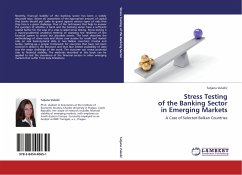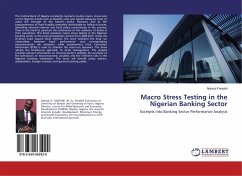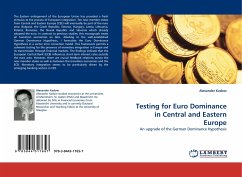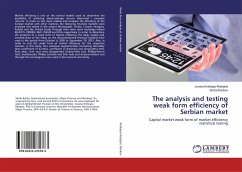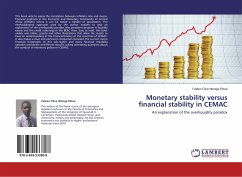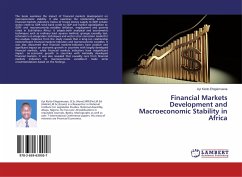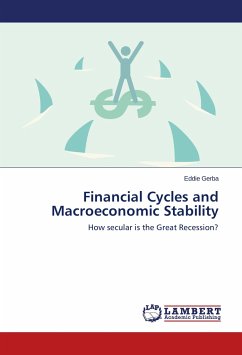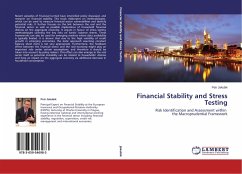
Financial Stability and Stress Testing
Risk Identification and Assessment within the Macroprudential Framework
Versandkostenfrei!
Versandfertig in 6-10 Tagen
41,99 €
inkl. MwSt.

PAYBACK Punkte
21 °P sammeln!
Recent episodes of financial turmoil have intensified policy discussion and research on financial stability. This book elaborates on methodologies, which can be used to measure financial sector vulnerabilities and identify potential risks. It further focuses on the link between the real and the financial sector as well as possible implications of household financial distress on the aggregate economy. It argues in favour of stress testing methodologies covering the key risks on banks' balance sheets. These frameworks can also be used for emerging markets where data availability is typically lim...
Recent episodes of financial turmoil have intensified policy discussion and research on financial stability. This book elaborates on methodologies, which can be used to measure financial sector vulnerabilities and identify potential risks. It further focuses on the link between the real and the financial sector as well as possible implications of household financial distress on the aggregate economy. It argues in favour of stress testing methodologies covering the key risks on banks' balance sheets. These frameworks can also be used for emerging markets where data availability is typically limited. It is shown that due to the high volatility of credit growth in emerging economies, the static approach assuming constant balance sheet items is not very appropriate. Furthermore, the feedback effect between the financial sector and the real economy might play an important role under certain assumptions, and therefore it should be taken into account by policy makers. This effect can also emerge in the real sector itself as potential instability can be related to households' distress and have an impact on the aggregate economy via additional decrease in household consumption.





